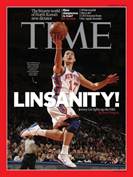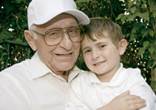题目内容
One day, many years ago, when I was working as a psychologist(心理学家) in England, David was brought into my office. His face was pale(苍白的)and he looked at his own feet.
David lost his father when he was two years old and lived with his mother and grandfather ever since. But the year before he turned 13, his grandfather died and his mother was killed in a car accident. His teacher told me that he refused to talk to others from then on.
How could I help him?
David didn't say a word. As he was leaving, I put my hand on his shoulder."Come back next week if you like. "I said.
He came and I suggested we play a game of chess. He agreed. After that we played chess every Wednesday afternoon--in complete silence. Usually, he arrived earlier than agreed. It seemed that he liked to be with me. But why didn't he ever look at me?
"Perhaps he simply needs someone to share his pain (痛苦)with," I thought.
Months later, when I was looking at his head, he suddenly looked up at me. "It's your turn," he said. After that day, David started talking. He finally got friends in school and he even joined a bicycle club. He wrote to me a few times. Now he had re ally started to live his life.
Maybe I gave David something. But I learned a lot from him. I learned how time makes it possible to get over what seems to be painful. David showed me how to help people like him. All they need is a shoulder to cry on, a friendly touch and an ear that listens.
小题1:When David was brought into the writer's office, ___________.
| A.he said hello to the writer |
| B.he seemed happy |
| C.he looked at his own feet |
| D.he smiled at the writer |
| A.13 | B.2 | C.5 | D.6 |
| A.played chess with him | B.told stories to him |
| C.wrote letters to him | D.played soccer with him |
| A.A chess club. | B.An art club. | C.An English club. | D.A bicycle club. |
| A.David finally got friends in school. |
| B.After his father died, David refused to talk to others. |
| C.David didn't say anything to the Writer at first. |
| D.At last the writer learned a lot from David. |
小题1:C
小题2:B
小题3:A
小题4:D
小题5:B
小题1:细节理解题,由文中语句“David was brought into my office. His face was pale(苍白的)and he looked at his own feet.”可知。
小题2:细节理解题,由文中语句“David lost his father when he was two years old and lived with his mother and grandfather ever since.”可知。
小题3:细节理解题,由文中语句“He came and I suggested we play a game of chess. He agreed. After that we played chess every Wednesday afternoon--in complete silence.”可知。
小题4:细节理解题,由文中语句“, David started talking. He finally got friends in school and he even joined a bicycle club.”可知。
小题5:理解归纳题,纵观全文语句理解归纳可知。

练习册系列答案
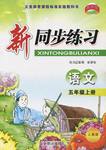 教学练新同步练习系列答案
教学练新同步练习系列答案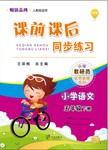 课前课后同步练习系列答案
课前课后同步练习系列答案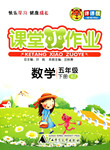 课堂小作业系列答案
课堂小作业系列答案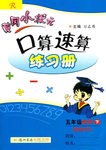 黄冈小状元口算速算练习册系列答案
黄冈小状元口算速算练习册系列答案
相关题目


